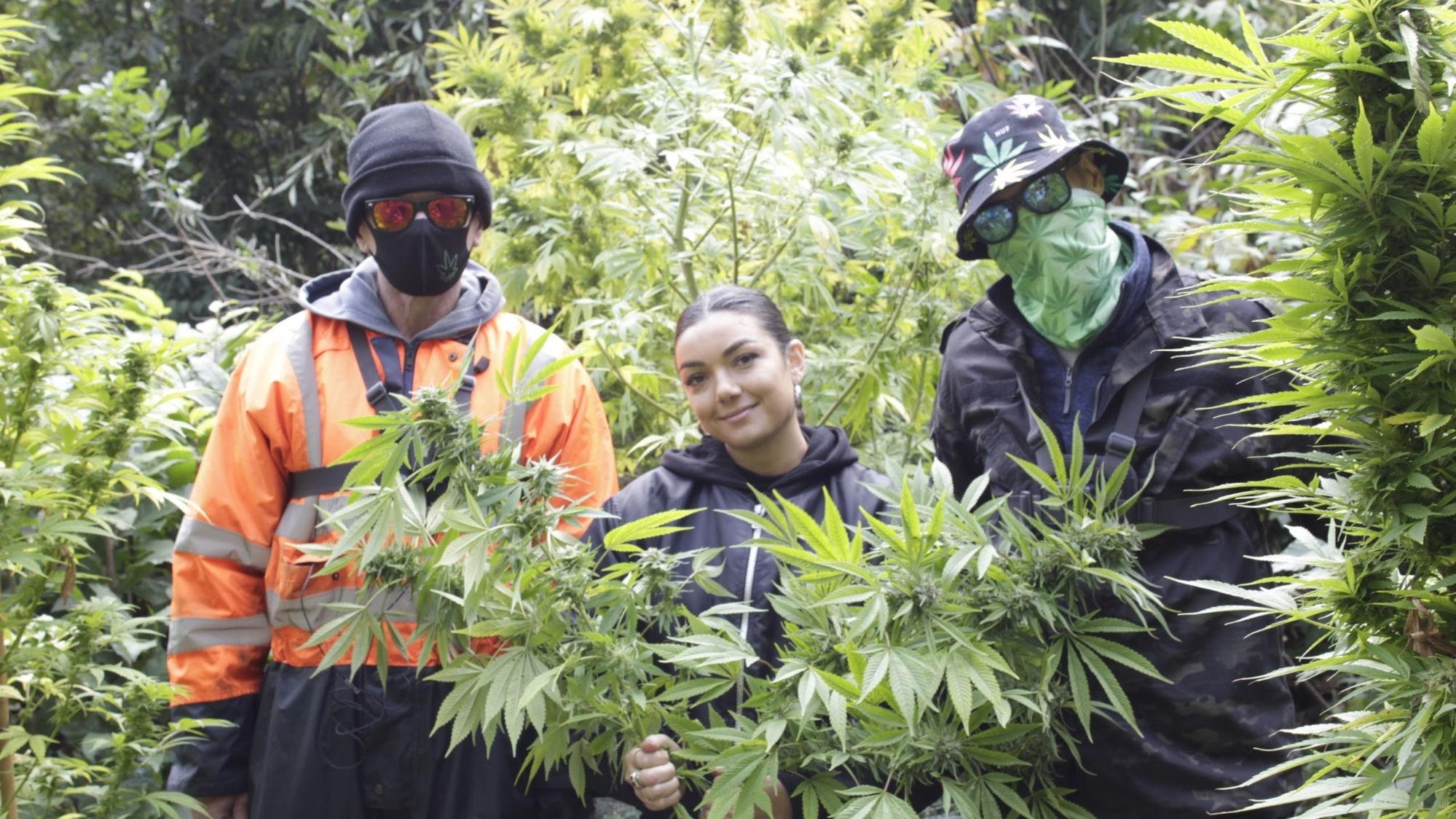Photo: Andrew Milligan/PA Images via Getty Images
Police forces have been wading into Britain’s flourishing illegal cannabis farm industry because of COVID lockdowns. Research by VICE World News shows that since the first national coronavirus lockdown in March some police forces have been turning the screw on cannabis farms as part of a wider clampdown on Britain’s drug trade. Police sources said a fall in the amount of recorded crime during lockdowns has meant more time has been freed up to proactively hunt down the country’s vast network of indoor cannabis factories. Merseyside police force’s specialist Cannabis Dismantling Team has busted 158 cannabis farms, seizing 23,000 plants, since March, a 33 percent increase compared to the same period last year.Merseyside’s assistant chief constable Rob Carden said in May that police were more able to target cannabis cultivation during lockdown because “decreases in crime and reported incidents have given us the opportunity to be more proactive in our policing”.In Bedfordshire, where police have been targeting the links between cannabis and violent organised crime, officers uncovered 100 cannabis farms between March and October, a 50 percent increase from last year. Nottinghamshire police said in August more than £4 million worth of cannabis plants had been seized during the pandemic, due to police having more time to investigate cannabis farms and neighbours being more tuned-in to what was happening in their street. Some raids have been on an industrial scale. In August police found a 3,000-plant weed factory in an abandoned historic building near West Bromwich. Last week police said a tip-off from neighbours led them to raiding a residential house by the North Circular Road in Brent, home to a huge, 1,000-plant weed farm.In October there was a flurry of high profile busts. Officers from the National Crime Agency joined two police forces to raid three sites – including a 1,000 plant factory operating over three floors inside a former nightclub in Coventry – allegedly operated by an Albanian-Vietnamese organised crime group. Also last month police uncovered thousands of plants during multiple raids at two industrial units, in Stourbridge and Sutton Coldfield, at a residential house in Wolverhampton and an old milk factory in St Helens, Merseyside.  Rural outdoor grows are harder for police to find because they are less prone to attracting attention, yet in September, a 750-plant farm was found in woodland near Mansfield, while 500 plants were discovered in a subterranean bunker made out of shipping containers beneath a Lincolnshire field. Up until this year, the number of cannabis farm busts had been going down, even though the use of weed by people in England and Wales has been going up. In 2013, 5,797 people were convicted of producing cannabis, but this fell by over to 2,032 in 2019. Britain’s now burgeoning illegal cannabis farm trade opened up in the mid-2000s, after a clampdown on the hash industry in Morocco and Dutch saw weed imports become unreliable. Initially the trade was dominated by Vietnamese gangs with previous expertise in running illegal grows in Canada. They imported slave labour by trafficking illegal Vietnamese immigrants to carry out the day to day maintenance of the farms, often living in squalid conditions and paid a pittance. The gangs worked alongside white British crooks who oversaw distribution and also operated grows themselves, some using the profits as down-payments to import kilos of cocaine. When police got wise to the fact thousands of suburban homes, old factories and rural warehouses around the country were fronts for growing weed, they set up a task force to make as many busts as possible. As a result, cannabis farmers made smaller, more secretive grows, but more widely proliferated, situated in a network of attics and abandoned, austerity-hit high street businesses across Britain. Vietnamese crews largely backed off, and have now been largely replaced by Albanian growing gangs, who are also using cheap labour from their homeland. The cannabis farm industry has itself been accompanied by a new profession – cannabis farm rip-off merchants, who specialise in raiding farms, sometimes using extreme violence and often at the behest of local gangs. Corrupt police have also been tempted to leech off the illegal industry, including one Manchester officer who ran cannabis farms and used his police database to target rivals.
Rural outdoor grows are harder for police to find because they are less prone to attracting attention, yet in September, a 750-plant farm was found in woodland near Mansfield, while 500 plants were discovered in a subterranean bunker made out of shipping containers beneath a Lincolnshire field. Up until this year, the number of cannabis farm busts had been going down, even though the use of weed by people in England and Wales has been going up. In 2013, 5,797 people were convicted of producing cannabis, but this fell by over to 2,032 in 2019. Britain’s now burgeoning illegal cannabis farm trade opened up in the mid-2000s, after a clampdown on the hash industry in Morocco and Dutch saw weed imports become unreliable. Initially the trade was dominated by Vietnamese gangs with previous expertise in running illegal grows in Canada. They imported slave labour by trafficking illegal Vietnamese immigrants to carry out the day to day maintenance of the farms, often living in squalid conditions and paid a pittance. The gangs worked alongside white British crooks who oversaw distribution and also operated grows themselves, some using the profits as down-payments to import kilos of cocaine. When police got wise to the fact thousands of suburban homes, old factories and rural warehouses around the country were fronts for growing weed, they set up a task force to make as many busts as possible. As a result, cannabis farmers made smaller, more secretive grows, but more widely proliferated, situated in a network of attics and abandoned, austerity-hit high street businesses across Britain. Vietnamese crews largely backed off, and have now been largely replaced by Albanian growing gangs, who are also using cheap labour from their homeland. The cannabis farm industry has itself been accompanied by a new profession – cannabis farm rip-off merchants, who specialise in raiding farms, sometimes using extreme violence and often at the behest of local gangs. Corrupt police have also been tempted to leech off the illegal industry, including one Manchester officer who ran cannabis farms and used his police database to target rivals.
Advertisement
Advertisement

